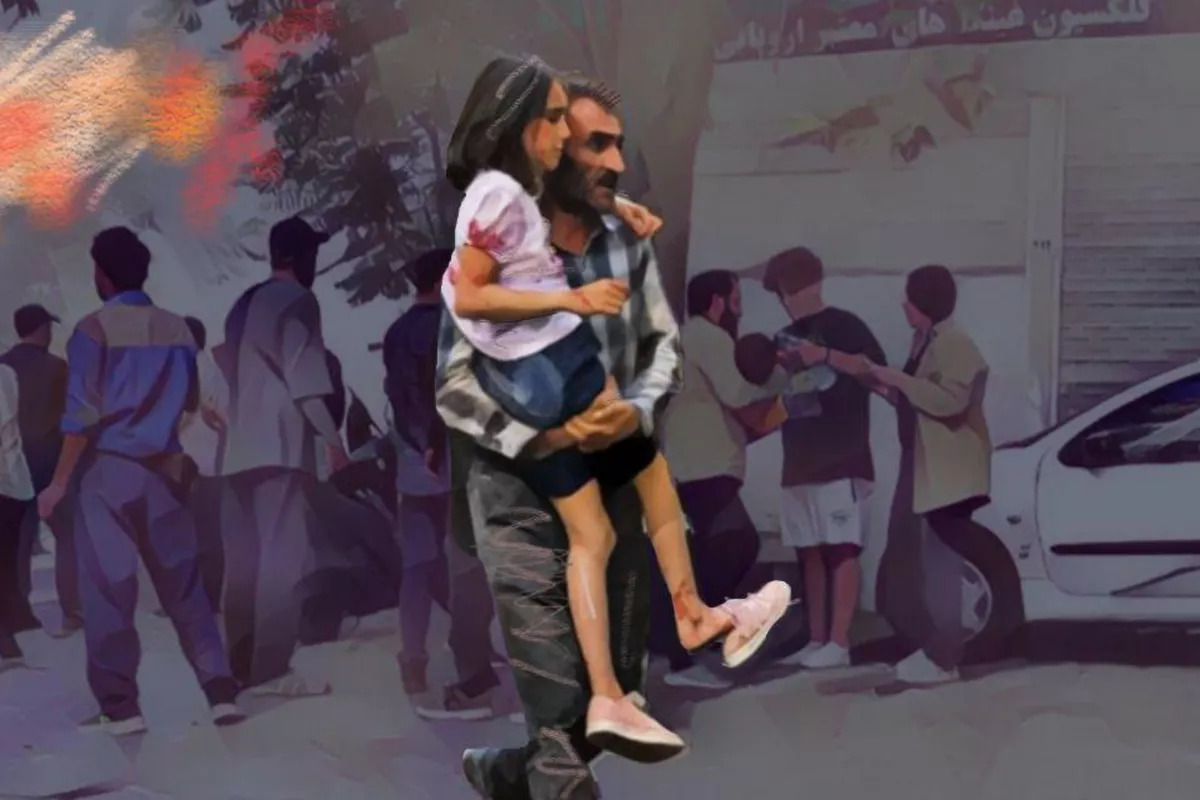
Image: TCA, Aleksandr Potolitsyn
Amid escalating hostilities between Israel and Iran in the Middle East, Kazakhstan, Kyrgyzstan, and Uzbekistan have launched a coordinated evacuation of their citizens from high-risk areas, relying on regional cooperation and humanitarian support to ensure their safe return, The Caspian Post reports citing foreign media.
Regional Support in Evacuation Efforts
Azerbaijan and Turkmenistan have stepped in to aid the Central Asian nations’ evacuation operations, providing transit routes and logistical support. At the Astara border checkpoint, six Kazakh citizens crossed from Iran into Azerbaijan, where they were offered medical assistance and meals before continuing their journeys. Turkmenistan has also facilitated the safe passage of approximately 120 evacuees, including citizens of Kazakhstan, Kyrgyzstan, Uzbekistan, Tajikistan, and Romania, through its border checkpoints with Iran.
Turkmenistan’s Ministry of Foreign Affairs confirmed that foreign diplomats and their families were recently evacuated from Iran through Turkmenistan. The country provided comprehensive humanitarian assistance to the evacuees, offering transportation, food, accommodation, and essential supplies. Turkmenistan’s authorities highlighted that the operation was carried out in close cooperation with foreign embassies and international organizations, reflecting its commitment to humanitarian values, international cooperation, and good neighborly relations, particularly during the “Year of Peace and Trust,” as declared by the United Nations General Assembly at Turkmenistan’s initiative.
Uzbekistan has evacuated over 30 citizens of its citizens from Iran via Turkmenistan and Azerbaijan, according to the Ministry of Foreign Affairs. “All necessary measures are being taken to ensure the safety of our citizens. The embassies of Uzbekistan in Iran and Israel are operating around the clock,” the ministry stated.
Kyrgyzstan has also successfully evacuated 28 of its citizens from Iran via Azerbaijan. “Currently, the necessary assistance is being provided to facilitate the swift return of the evacuees from Azerbaijan to Kyrgyzstan,” a Foreign Ministry official stated.
Flight Bans and Alternative Routes
Kazakhstan’s Civil Aviation Committee has meanwhile implemented a full ban on flights over or near the airspace of Iran, Iraq, Israel, Jordan, Lebanon, and Syria following intensified airstrikes in the region. This decision disrupted flights for hundreds of Kazakh travelers, particularly those in the United Arab Emirates and other Middle Eastern nations.
To address the situation, alternative evacuation routes were established. On June 15, two FlyDubai flights arrived in Almaty, carrying a total of 332 Kazakh citizens. These flights included passengers initially stranded after the airspace ban and others who had been scheduled to depart after the interruption. Following rerouting operations, airlines such as Air Astana and FlyArystan have warned of disruptions to flights to and from the Gulf and North Africa. Passengers have been advised to check schedules in advance and to expect delays.
Mirziyoyev Addresses the Conflict’s Impact
The conflict between Israel and Iran has raised serious concerns across Central Asia. Speaking during a government meeting held via videoconference, Uzbekistan’s President Mirziyoyev warned that the hostilities could negatively impact newly developing trade and transport routes in the region.
The growing conflict will “have an impact not only on the Middle East, but also on our region. If the escalation continues, trade relations and logistics routes that are only just being restored after the pandemic will become more difficult,” Mirziyoyev’s press secretary stated. The President urged regional governors and ministers to act proactively, assessing risks in their areas, and stressed the importance of clear communication with the public and business community to resolve challenges promptly.
Security Advisories Issued
Following Israeli airstrikes on Iranian territory on the night of June 13, which targeted suspected uranium enrichment sites, missile bases, and high-ranking members of Iran’s Islamic Revolutionary Guard Corps, Central Asian countries have taken precautionary measures. Uzbekistan’s Ministry of Foreign Affairs advised citizens in both Iran and Israel to stay alert, follow local safety guidelines, and be prepared to shelter if necessary. Citizens were also urged to carry identification and maintain close contact with their respective embassies.
Kazakhstan’s embassy in Tel Aviv similarly issued guidelines for its citizens, encouraging vigilance, staying informed through official sources, and staying in touch with the embassy. Emergency hotlines were established to provide immediate support.
The Ministry of Foreign Affairs has also urged Kyrgyz nationals residing in affected areas to avoid high-risk zones, comply with local safety advisories, and maintain close contact with its diplomatic missions. Emergency hotlines have been established for citizens needing immediate assistance.
Broader Context of the Conflict
The evacuation effort comes amid an escalating tit-for-tat of military strikes between Israel and Iran. Recent airstrikes have resulted in significant casualties, including over 224 deaths in Iran and 24 in Israel, with dozens more injured.
The authorities in Kazakhstan, Kyrgyzstan, and Uzbekistan have confirmed that evacuation efforts are ongoing and will adapt to changing circumstances to ensure the protection of all of its nationals in conflict zones.
Share on social media